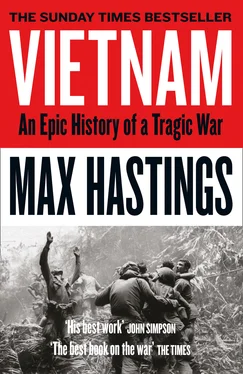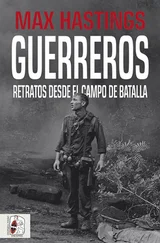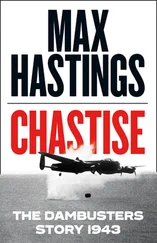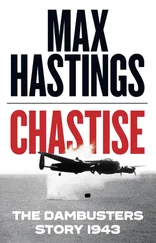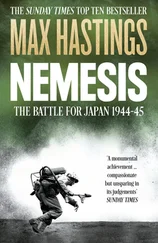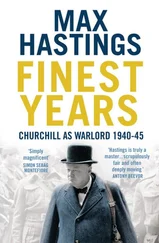JCS US Joint Chiefs of Staff
Kit Carson scouts NVA or VC defectors serving with US units
LAW shoulder-fired 66mm Light Anti-tank Weapon, used by US and South Vietnamese forces
LRRP long-range reconnaissance patrol
LZ landing zone for a helicopter assault – a ‘hot’ LZ was one defended by the enemy
M-14 US Army 7.62mm semi-automatic infantry rifle, standard until 1966–68, when progressively withdrawn
M-16 5.56mm rifle, a much lighter automatic weapon than the M-14 that it replaced, of which 1966–68 versions proved prone to jam in action
MACV Military Assistance Command Vietnam, US headquarters in Saigon – pronounced ‘Mac-V’
MEDCAP Medical Civil Action Program – deployment of military medical teams to provide care to the civil population
montagnards originally French term for Vietnamese hill tribes, often abbreviated by Americans to ‘Yards’, who were almost universally anti-communist and often recruited by special forces as irregulars
NLF National Liberation Front: the supposed political coalition – in reality entirely communist-run – movement, established in 1960 to promote and direct Southern resistance to the Saigon government
NSC National Security Council
NVA North Vietnamese Army, a contemporary American usage adopted below, in preference to the more common modern PAVN, People’s Army of Vietnam
platoon element of 30–40 men, normally four to each company, customarily commanded by a lieutenant, seconded by a sergeant
PRC-10, later replaced by PRC-25, US infantry voice radio set, weighing 23.5lb including battery. A company commander might be accompanied by up to three RTOs – operators – each carrying a set tuned to different nets
PRG Provisional Revolutionary Government-in-waiting created by the communists in June 1969 to supersede the NLF. It was initially located at COSVN, then from February 1973 at South Vietnam’s ‘provisional capital’ at Loc Ninh, north of Saigon
RoE Rules of Engagement, whereby US forces were permitted to attack communist forces and installations; entirely different in South and North Vietnam, Laos and Cambodia, and varied during the course of the war
recoilless rifle relatively portable Soviet-designed short-range artillery pieces ranging in calibre from 57mm to 106mm, that could penetrate armour at a range of 500 yards, or propel an explosive bomb up to 4,000 yards, mounted either on a tripod or a two-wheeled carriage; extensively used by the VC and NVA
regiment military unit normally composed of three battalions, commanded by a full colonel
RF, PF Regional Forces, Popular Forces – militias recruited by Saigon for local defence, lightly-armed and commanded by province chiefs, totalling 525,000 men and sometimes known as Ruff-Puffs
RPG rocket-propelled grenade-launcher, a superbly effective communist shoulder-fired weapon, delivering a rocket with a range of 150 yards, that could penetrate seven inches of armour
R&R rest and recuperation – a week-long out-of-country leave granted to all US personnel at least once during a Vietnam tour, usually in Hawaii, Hong Kong or Australia
SAC USAF Strategic Air Command, of which the B-52 bomber force was the principal component
SAM Soviet-built surface-to-air missile, most commonly the SAM-2, deployed in North Vietnam from 1965
sappers VC and NVA elite spearhead units, specially trained in the use of explosives
SF Special Forces
‘short’ a term used by US soldiers – ‘I’m short’ – to denote a man close to his DEROS – Date of Estimated Return from Overseas Service, and thus exceptionally reluctant to die
slick troop transport helicopter, most often a Huey
SOP standard operating procedure
squad normally four in an infantry platoon, comprised of 8–10 men commanded by an NCO, subdivided into fireteams
USIA US Information Agency
Vietcong or VC derives from term Cong San Viet Nam , meaning Vietnamese communist, progressively adopted from the late 1950s
Vietminh common usage for the Viet Nam Doc Lap Dong Minh Hoi , Vietnamese communist front organisation founded in 1941
1
Beauty and Many Beasts
1 CLINGING TO AN EMPIRE
Let us start this long tale, tragic even among the myriad tragedies of wars, not with a Frenchman or an American, but with a Vietnamese. Doan Phuong Hai was born in 1944 in a village on Route 6 only eighteen miles from Hanoi, yet wholly rustic. Among Hai’s earliest memories was that of wire, barbed wire, the rusty strands that encircled the French army post on a hillock near the marketplace, and the manner in which they sang when the wind blew through them. Behind the wire and beneath France’s fluttering tricolour flag lived a Vietnamese trumpeter named Vien, whom the little boy loved. Vien gave him empty butter tins and metal bottle caps, from which he built and cherished a toy car. Hai would sit among a little cluster of admiring children listening to Vien’s tales of his many battles, peering at the scar from a leg wound he had received at Limestone Mountain where he blew the call for a charge in which Foreign Legionnaires claimed to have killed a hundred communists. The boys stroked the sergeant’s stripes and hoarded empty cartridge cases that he occasionally gave to them.
Sometimes Vien would sing in a deep, sad voice, perhaps about his mother who had died in the previous year. Then, as a special treat, he led his small followers down to the riverbank and played in succession the bugle calls of the army, ‘some that made our hearts thrill to the notes, others so sad that they made one want to cry’. Then came a day in 1951 when Hai’s family moved to Hanoi, taking all their possessions aboard the aged district bus. Vien was commanding a picket by the roadside, and gave him parting gifts of two pieces of chewing gum and a gentle tug on the ear. As the bus pulled away, the boy saw him waving through a cloud of red dust behind, as houses, paddy fields, bamboo groves and da trees at the end of the village disappeared from his own life forever. Hai embarked upon a succession of journeys, exiles, a few joys and many misfortunes, such as were the shared experience of the Vietnamese people for half a century. Though he himself became a soldier, never again would warriors be imbued in his eyes with the glow of romance conferred upon them by Sergeant Vien and his bugle.
Vietnam endured a thousand years of rule by the Chinese before their expulsion in 938; they returned several times, and were finally driven out only in 1426. Thereafter the country enjoyed independence, though by no means stability or good governance. Rival dynasties controlled the north and south respectively until 1802, when Emperor Gia Long imposed unity, ruling from the city of Hue. During the late-nineteenth-century scramble for empires, France fixed its attentions on Indochina, and by force of arms established a progressive dominance, initially in the south, Cochinchina. In May 1883, when the National Assembly in Paris voted five million francs for an expedition to consolidate the region as a ‘protectorate’, the conservative politician Jules Delafosse proclaimed, ‘Let us, gentlemen, call things by their name. It is not a protectorate that you want, but a possession.’ So it was, of course. The French committed twenty thousand troops to securing Tonkin – northern Vietnam. Achieving this after a year’s hard fighting, they imposed a ruthless governance. While they abolished the old custom of condemning adulteresses to be trampled to death by elephants, the penalty of beheading, formerly imposed only upon thieves, was extended to all who challenged French hegemony. Opium consumption soared after the colonial power opened a Saigon refinery.
Vietnam comprises 126,000 square miles, a few more than Italy or metropolitan France, most of which are mountainous and shrouded in exotic vegetation, or flatland of extraordinary seasonal wetness and fertility. Almost every visitor who escaped the penance of exertion in the clinging heat was awed by its beauty and penned lyrical descriptions, celebrating views of ‘paddy fields in which water buffalo grazed, almost every one with a white egret perched on its back picking at insects; of vegetation so bright and green that it hurt the eyes; of waits at ferries beside broad rivers the colour of café crème; of gaudy pagodas and wooden homes on stilts, surrounded by dogs and ducks; of the steaming atmosphere, the ripe smells and water everywhere, giving a sense of fecundity, of nature spawning, ripening and on heat’.
Читать дальше
